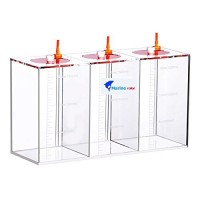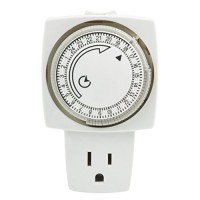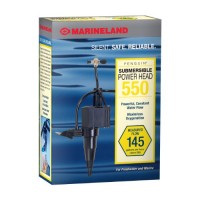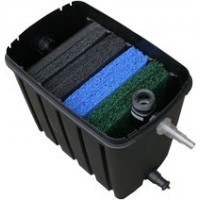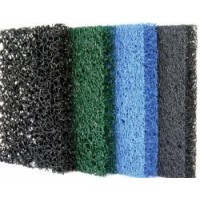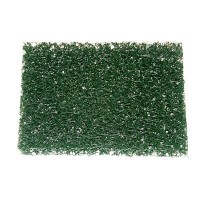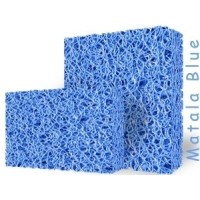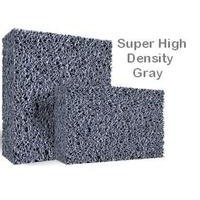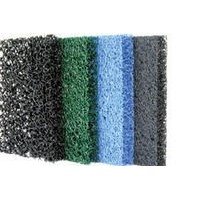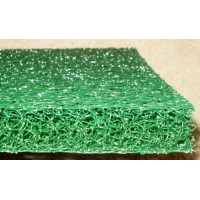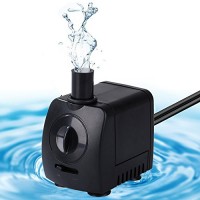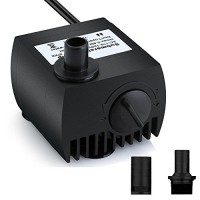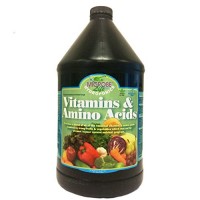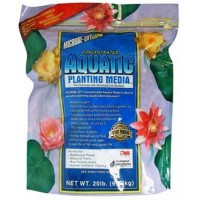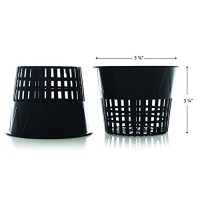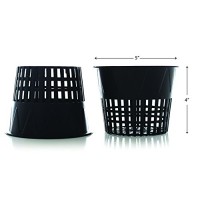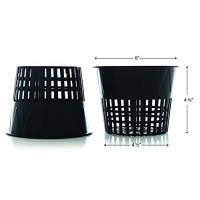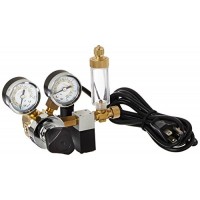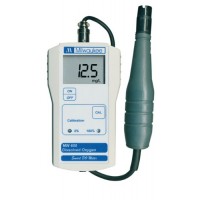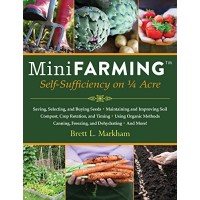Aquaponic Supplies
Aquaponics can be defined defined as a sustainable food production system that combines traditional aquaculture with hydroponics, with effluent from the water being used as nutrition for the plants. Despite the technical sounding nature of the description and etymological origins of quaponics, a rudimentary DIY aquaponics system is very easy to install by someone with basic skills in their own backyard or property. Complete kits are also sold that come with all basic growing tubs, plumbing systems and pumps if you prefer to get your start with a complete turn-key system.
For self sustenance or off the grid living or just as an experiment in natural life cycles aquaponics is a compelling field for the hobbyist or serious forward thinker interested in sustainable farming practices. Latest Books on Aquaponics
Refine Search
Marinecolor® Acryli Made Liquid Storage Bucket 3 Rooms 4.5 Liters, Working with Dosing Pump
Specification 3 storage rooms, 4.5 liters clear acryli made 3.8mm thick Capability : 1500mL/each room Scale mark size:size:31.8cm (12.5") X 10.8cm (4.25") X 17.5cm ( 6.89") idea for dosing pump ..
MarineLand PA0401 24-Hour Aqua-Timer, Grounded
Aquarium timer.Has a 24 hour cycleGroundedWorks on standard plugsAquarium timer...
MarineLand Penguin Submersible Power Head Pump for Aquariums
From industry firsts to industry standards, Marineland products are designed with both performance and style in mind. We push precision and power beyond the expected and listen to our loyal customers ..
Matala Biosteps 10 Filter Matala Biosteps 10 Filter Biosteps w/NO UV
The Biosteps Gravity filter by Matala contains an amazing 200 sq. ft. of surface area for beneficial bacterial growth. Combined that with a cross flow design that traps and processes more debris at hi..
Matala Blue Filter Pad 39.5" x 24" x 1.5" Half Sheet Media
Matala Blue Filter Pad 39.5" x 24" x 1.5" Half Sheet Media consists of 1 ea BLUE onlyFilters & separates large particles to smallAllows for free flow of waterWill not sink to the bottom of your filter..
Matala Green Filter Pad, 39.5" x 24" x 1.5"
HALFGRN Sheet: Medium Density Green Features: -Works great both as a mechanical and a biological media. -Mechanical media -- collects debris more efficiently and prevents clogging; solid fibers resist..
Matala Mat (Blue) 24" X 39" for Koi & Pond Filters
The open, highly aerobic 3 dimensional structure of Matala Filter Media promotes healthy water conditions and ease of cleaning in a wide variety of filter designs.Provides ease of cleaning in a wide v..
Matala Mat (Gray) 39" X 24" for Koi & Pond Filters
Available in Gray - Super High Density, Blue - High Density, Green - Medium Density, and Black - Low Density. Matala Mat Filter Pad 39 inches x 24 inches x 1.5 inches. The open highly aerobic tri-dime..
Matala MAT4PKHALF Half Sheet Pond and Koi Filter Media (4 Pack), 39" x 24", Multicolor
One each of the Gray-Super High Density, Blue-High Density, Green-Medium Density, and Black-Low Density filter mats. 4 Pack of Matala Mat Filter Pad 39" x 24" x 1.5" The open, highly aerobic tri-dimen..
Matala MWT006 Green
Mat a LA filter media is one of the widest used & critically acclaimed filter medias on the market. Featured in pond, koi, & fish care magazines, & all for good reason! these light weight sheets provi..
Maxesla Submersible Pump 145GPH (550L/H) Fountain Water Pump For Pond/Aquarium/Fish Tank/Statuary/Hydroponics with 5.9ft (1.8M) Power Cord
Maxesla Submersible Pump 145 GPH (550/H) Fountain Water Pump For Pond/Aquarium/Fish Tank/ Statuary/Hydroponics with 5.9ft (1.8M) Power Cord Why choose Maxesla Submersible Fountain Water Pump Overview..
Maxesla Submersible Pump 80 GPH (300L/H) Fountain Water Pump For Pond/Aquarium/Fish Tank/Statuary/Hydroponics with 5.9ft (1.8M) Power Cord
Maxesla Submersible Pump 80 GPH (300L/H) Fountain Water Pump For Pond/Aquarium/Fish Tank/ Statuary/Hydroponics with 5.9ft (1.8M) Power Cord Why choose Maxesla Submersible Fountain Water Pump Overview..
Micro Pondless Waterfall Kit
Child-friendly, fits in the smallest of places and has virtually no maintenance. It's no wonder it's one of our best sellers.The MicroPondless Waterfall Kit Includes:-MicroCentipede Module-MicroSnorke..
Microbe Life Hydroponics PH21369 Vitamins & Amino Acids Supplement for Hydroponics Soil Conditioning and Aquaponics (1 Gallon)
Vitamins & Amino Acids provides a blend of all of the essential vitamins and amino acids required by many fruits and vegetables which may not be present in your current nutrient program. Most of the c..
Microbe Lift 20-Pound Pond Concentrated Aquatic Planting Media MLCAPM20
Aquatic planting mediaIdeal when potting aquatic plantsEnormous surface area perfect to colonize beneficial nitrifying bacteriaAllows mixing any ratio of loam to plant mediaNontoxic to plantsWill not ..
Milliard 3.75in. Hydroponic/Orchid Slotted Net Pot / Net Cup - 20 Pack
Know Your Roots Milliard Net Pots are designed to give your plants room to grow... down below. Did you know that a plant's roots are as expansive as its branches and leaves? Give them room to breathe!..
Milliard 5in. Hydroponic/Orchid Slotted Net Pot/Net Cup - 20 Pack
Know Your Roots Milliard Net Pots are designed to give your plants room to grow... down below. Did you know that a plant's roots are as expansive as its branches and leaves? Give them room to breathe!..
Milliard 6in. Hydroponic/Orchid Slotted Net Pot / Net Cup - 20 Pack
Know Your Roots Milliard Net Pots are designed to give your plants room to grow... down below. Did you know that a plant's roots are as expansive as its branches and leaves? Give them room to breathe!..
Milwaukee Instruments MA957 Dual-Valve CO2 Adjustable Flow Pressure Regulator, Dual Reading psi and kg/cm
The Milwaukee Instruments MA957 adjustable flow CO2 pressure regulator has two valves to independently measure flow rate and remaining CO2 tank contents (CO2 tank sold separately). Each valve has dual..
Milwaukee MW600 LED Economy Portable Dissolved Oxygen Meter with 2 Point Manual Calibration, 0.0 - 19.0 mg/L, 0.1 mg/L Resolution, +/-1.5 percent A...
The Milwaukee MW600 is a portable dissolved oxygen (DO) meter for educational, aquaculture, water analysis, and environmental analysis applications, with an LCD screen and polarographic probe with 3m..
Mini Farming: Self-Sufficiency on 1/4 Acre
Start a mini farm on a quarter acre or less, provide 85 percent of the food for a family of four and earn an income. Mini Farming describes a holistic approach to small-area farming that will show you..
All aquaponics systems are usually grouped into several components or subsystems responsible for the effective removal of solid wastes, for adding bases to neutralize acids, and for maintaining water oxygenation. The complexity of each aquaponic system varies on the size and types of plants and fish grown. Decorative aquaponic systems can be used indoors or small herb growing goldfish tanks can be set-up in kitchens but even if it is a large scale system with hundreds of kilos of fish living in multiple tanks containing thousands of gallons the systems remain fairly uniform in concept.
Typical components include:
1. Growth tank: the tanks for raising and feeding the fish;
2. Settling tank: a unit for catching uneaten food and detached biofilms, and for settling out fine particulates;
3. Biofilter: a place where the nitrification bacteria can grow and convert ammonia into nitrates, which are usable by the plants;
4. Hydroponics subsystem: the portion of the system where plants are grown by absorbing excess nutrients from the water;
5. Sump: the lowest point in the system where the water flows to and from which it is pumped back to the rearing tanks.
Latest Books on Aquaponics

